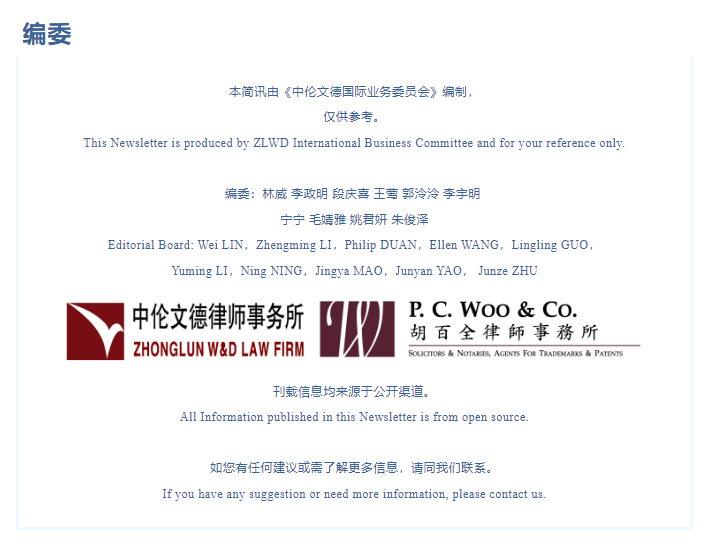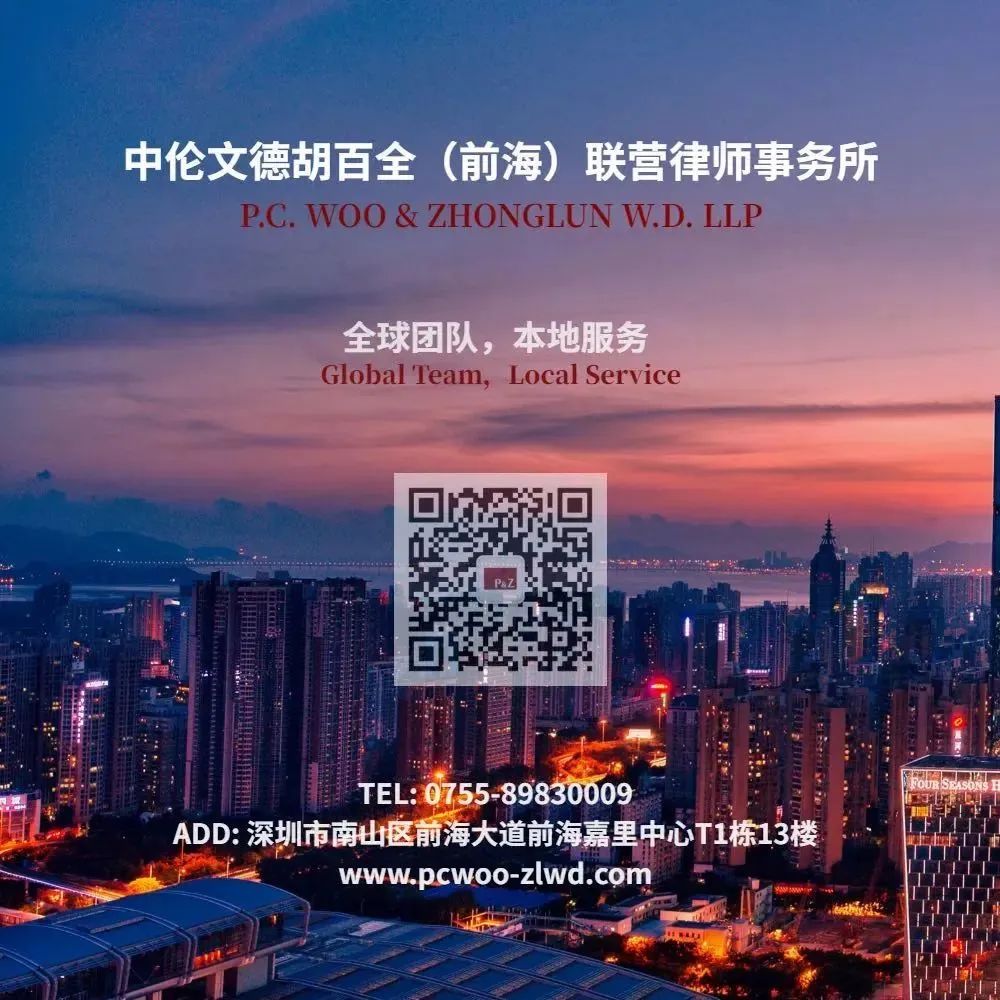
NEWS

NEWS

"Shanghai Arbitration Association Interim Arbitration Rules" Released
On October 14, the Second Hengqin Guangdong-Macao Deep Cooperation Zone Arbitration and Mediation Week (hereinafter referred to as "Hengqin Arbitration and Mediation Week") was inaugurated at the Qinao International Legal Services Cluster. During the event, the "Action Plan for Building an International First-Class Arbitration Institution at the Zhuhai International Arbitration Center" was officially released, outlining the development plan for the Zhuhai International Arbitration Center over the next two years, with the aim of establishing an internationally renowned arbitration institution and creating a foreign-related legal service brand for the Hengqin Guangdong-Macao Deep Cooperation Zone.
The Hengqin Arbitration and Mediation Week is a legal branding event co-hosted by the Zhuhai International Arbitration Center (Hengqin International Arbitration Center), the Zhuhai Law Society, and the Hengqin International Commercial Mediation Center. It aims to promote the establishment of a diversified dispute resolution mechanism, enhance social attention to the development of arbitration and mediation, and leverage the international characteristics of arbitration and mediation to facilitate legal connectivity between Hengqin, Macao, and the Greater Bay Area, enriching the new content of "one country, two systems" in the Greater Bay Area.
This Hengqin Arbitration and Mediation Week includes a variety of activities such as high-end academic forums and salons, lecture forums, seminars, mock arbitration courts, online live courses, and promotional discussions. The content combines deep legal insights with broad practical applications, further deepening cooperation between Hengqin and Macao, strengthening the promotion of arbitration and mediation mechanisms, and jointly advancing integration and communication in legal services, especially in the area of diversified dispute resolution mechanisms.
IPBA 2024 Arbitration Day Event Held in Shenzhen
On October 25, 2024, the Inter-Pacific Bar Association (IPBA) held its 2024 Arbitration Day event in Shenzhen, co-hosted by the Shenzhen International Arbitration Center (also known as the South China International Economic and Trade Arbitration Commission and the Guangdong-Hong Kong-Macao Greater Bay Area International Arbitration Center, abbreviated as "SCIA") and the IPBA at the SCIA Tower in Qianhai, Shenzhen.
The conference, themed "Arbitration in the Face of Tech Innovation and a Changing Landscape," featured speeches and discussions from professionals representing 12 countries and regions, including Japan, South Korea, Singapore, China, and Hong Kong. Nearly 150 international arbitration experts, senior arbitrators, renowned lawyers from international law firms, and distinguished scholars from over 30 countries, including China, Singapore, Japan, South Korea, the United States, Russia, Spain, Switzerland, Australia, the UAE, and India, participated in the event.
During the roundtable discussion, attendees explored five key topics: "Arbitration in the Age of Rapid Innovation," "Common Issues in Technology Arbitration," "The Application of Intellectual Property in Tech Arbitration," "Arbitration Matters Post-Investment Joint Ventures and Mergers," and "Innovative Developments in Investment Arbitration in the Asia-Pacific." Participants provided professional insights and engaged in in-depth discussions.
China's First Arbitration Tribunal Interim Measures Decision Enforced by Court
Recently, according to a report of Beijing Arbitration Commission (hereinafter referred to as "BAC"), in an international arbitration case concerning a technology development and service dispute accepted by the BAC, the arbitration tribunal issued an interim measures decision based on the applicant's request. This decision was upheld and executed by the Fourth Intermediate People's Court of Beijing, marking the first instance in China where an interim measures decision made by an arbitration tribunal has been enforced by a court.
In international arbitration, interim measures refer to temporary mandatory actions taken by the arbitration tribunal or a court to safeguard the smooth progress of the arbitration proceedings and the effective enforcement of the arbitration award. These measures can involve actions against the property, evidence, or conduct of the opposing party based on a party's application. The UNCITRAL Model Law on International Commercial Arbitration provides that the arbitration tribunal may issue interim measures based on the parties' requests, which can then be enforced by the court. This practice is widely accepted internationally and is an important indicator in the World Bank's assessments of business environments.
As the first case in the country where an arbitration tribunal's interim measures decision has been practically enforced by a court, this case highlights the proactive commitment of Beijing's judiciary to create a friendly judicial environment. It significantly promotes the alignment of the city's arbitration system with advanced international arbitration systems and concepts.
Weinan Intermediate People's Court:Arbitration Jurisdiction Should Be Based on a Written Arbitration Agreement, Not Presumed from Participation in Defense
Legal Basis:
"Arbitration Law of the People’s Republic of China"
Article 58
Where the parties concerned can provide evidence disproving the arbitration award in any of the following circumstances, they may request a cancellation of the arbitration award by an intermediate People's Court at the place where the arbitration commission is located:
(1) there was no arbitration agreement;
(2) items for arbitration were not within the scope of the arbitration agreement or were those upon which the arbitration commission had no right to arbitrate;
(3) the establishment of the arbitration tribunal or arbitration procedures are in contravention of legal proceedings;
(4) the evidence upon which the arbitration award is made was counterfeit;
(5) the other party has concealed evidence to the degree that fairness has been affected;
(6) arbitrators have accepted bribes, resorted to deception for personal gain or perverted the course of justice by the award.
Where the People's Court has formed a collegiate bench and has examined and verified that the award was made under one of the aforesaid situations, it shall order the cancellation of the award.
Where the People's Court decides that it should make a ruling to the effect that there has been a violation of the public interest, it shall order the cancellation of the award..
Case Description:
On April 7, 2024, applicant Wang Junxiang and Weinan Yangtze Decoration and Construction Engineering Co., Ltd. (hereinafter referred to as "Yangtze Company") jointly applied to the court to annul the Weinan Arbitration Commission's decision No. [2022] Wei Zhong Zi No. 91 (hereinafter referred to as the “Arbitration Award”) made on February 23, 2024. The main reason for the application was that there was no valid arbitration agreement between Wang Junxiang and the respondent Wang Junjie.
The applicant argued that the Arbitration Award incorrectly determined that the "Cooperation Agreement" signed between Wang Junxiang and Wang Junjie was an act performed in the course of Wang Junxiang's duties at Yangtze Company. In fact, the agreement was a personal partnership agreement between Wang Junxiang and Wang Junjie and should not be viewed as a contract between Yangtze Company and Wang Junjie. The arbitration clause based on that agreement could only bind Yangtze Company and Wang Junjie and had no bearing on Wang Junxiang personally; thus, there was no arbitration agreement formed between Wang Junxiang and Wang Junjie.
Additionally, the applicant pointed out that the Arbitration Award exceeded the scope of the arbitration agreement. Wang Junxiang emphasized that the dispute resolution clause in the "Cooperation Agreement" only concerned disputes arising during the performance of the agreement, while the Arbitration Award involved debt issues between Wang Junxiang and Yangtze Company, which were outside the arbitration agreement's provisions. Furthermore, Wang Junjie concealed important evidence during the arbitration process and failed to provide sufficient bank statements to prove the transfer of funds to Wang Junxiang, making the arbitration process illegal and rendering the ruling invalid.
Respondent Wang Junjie contended that the arbitration commission had jurisdiction over the case, asserting that Wang Junxiang did not dispute the validity of the arbitration agreement throughout the arbitration process and participated in selecting arbitration personnel and proceedings. Therefore, Wang Junjie argued that the applicant's reasons for annulling the Arbitration Award were unfounded.
Court's View:
The court held that the core issue in this case was the validity of the arbitration agreement and the legality of the arbitration process. According to the Arbitration Law of the People's Republic of China, the existence of an arbitration agreement is a prerequisite for the arbitration commission to make a ruling. The court first examined the "Cooperation Agreement" signed between Wang Junxiang and Wang Junjie and confirmed that the signatory of the agreement was the individual Wang Junxiang, not Yangtze Company. The content of the agreement clearly indicated that Wang Junxiang signed it in his personal capacity, with no provisions indicating that Yangtze Company was a party. Thus, the "Cooperation Agreement" signed by Wang Junxiang did not constitute an act performed in the course of his duties, and its arbitration clause did not have legal effect on Yangtze Company.
Secondly, the court pointed out that the confirmation of arbitration jurisdiction must rely on the existence of a written arbitration agreement. Wang Junxiang did not dispute the effectiveness of the arbitration agreement throughout the arbitration process, but this was not sufficient to assume his consent to the arbitration jurisdiction. Wang Junjie's arbitration request lacked clarity and specificity and failed to provide adequate evidence to support his claims, thereby raising questions about the legality of the arbitration process.
Moreover, the court noted that Wang Junjie concealed key information during the arbitration process and failed to timely provide necessary bank statements, preventing the arbitration tribunal from fully and fairly hearing the case. This conduct severely impacted the fairness of the arbitration ruling.
In conclusion, based on Article 58, Paragraph 1, Item (3) of the Arbitration Law, the court ruled to revoke the decision No. [2022] Weinan Arbitration Commission Case No. 91, determining that the decision was made under the circumstances of "no arbitration agreement" and that the arbitration procedure was seriously in violation of the law, thus the decision should not take effect.
Singapore High Court:Arbitration Award Does Not Violate Principles of Natural Justice; Applicant's Request for Annulment Denied
Case Description:
On March 16, 2015, applicant DIB entered into a contract with respondent DIC, stipulating that the respondent would provide a production line capable of producing 8,000 liters of candy per hour. According to Article 3 of the contract, the applicant paid the respondent 128,250,000 Singapore Dollars. On March 27, 2020, the applicant terminated the contract, citing multiple defects in the production line that rendered the contract's purpose unachievable.
On September 21, 2020, the applicant initiated arbitration at the International Chamber of Commerce (ICC), seeking a refund for the purchase price of the production line, along with shipping costs, customs duties, testing fees, and other expenses, totaling 171,661,109 Singapore Dollars.
On June 2, 2023, the arbitration tribunal ruled that the production line did not meet the requirement of "producing 8,000 liters of candy per hour." However, the applicant had used the production line for three years after receipt without raising any objections, indicating acceptance of the line, and thereby forfeiting the right to claim. Ultimately, respondent DIC won the arbitration.
The applicant DIB now seeks to annul the ruling on the grounds of a violation of natural justice. The applicant presented four arguments: (a) whether the tribunal deprived the applicant of the opportunity to respond reasonably to an unpleaded issue regarding whether the delivery of a defective production line was sufficient to invalidate the "consideration" claim (the "Failure of Consideration Breach"); (b) whether the tribunal mistakenly believed that if the applicant was deemed to have accepted the production line, they would abandon their "failure of consideration" claim, thus failing to consider the applicant's position (the "Acceptance Breach"); (c) whether the tribunal deprived the applicant of the opportunity to respond reasonably to an unpleaded issue regarding whether Engineer R had the authority to accept the production line on behalf of the respondent and whether the tribunal made an erroneous ruling beyond its jurisdiction (the "Jurisdiction Breach"); (d) whether the tribunal failed to pay attention to the submitted materials or failed to rule on the arguments and evidence presented in the applicant's letter dated October 31, 2018 (the "Notice of Refusal Breach").
Court's View:
The court found that the key issue in this case was whether the tribunal adhered to the principles of natural justice during its decision-making process. According to general legal principles, the applicant must clearly identify the natural justice rules that were violated and how this violation relates to the outcome of the ruling. The court reviewed the four arguments put forth by the applicant, assessing each in turn and finding none constituted a violation of natural justice.
First, regarding the claim of failure of consideration, although the tribunal found that the respondent breached contract terms, it dismissed the applicant's request for a refund. The court noted that the tribunal determined the respondent had delivered the production line and assisted with installation, and therefore, the applicant's claim based on complete failure of consideration was unfounded. The court concluded that the tribunal's reasoning aligned with the arguments presented by both parties, and the applicant had ample opportunity to respond, thus not constituting unfair treatment.
Second, concerning the acceptance breach claim, the applicant argued that the tribunal misinterpreted their statements. The court found that the tribunal had sufficiently reviewed the applicant's claims of unjust enrichment, and while there may have been a misunderstanding, this was not enough to overturn the ruling. The tribunal's reasoning was based on the premise that the applicant had accepted partial contractual benefits, thereby excluding the complete failure of consideration claim.
Third, on the jurisdiction breach claim, the applicant contended that the tribunal did not adequately consider the authority of Engineer R. The court sided with the respondent, stating that the tribunal's judgment was based on facts as modified by the applicant and was not influenced by the authority issue. Even if there were disputes, the tribunal's ultimate conclusion was not undermined by this discussion.
Lastly, regarding the notice of refusal breach claim, the applicant argued that the tribunal did not fully consider the defect notice sent on October 31, 2018. The court concluded that the tribunal had indeed considered this notice and determined that the applicant had only raised objections in 2020, clearly losing the right to refuse. Therefore, the handling of the notice did not affect the final ruling.
In summary, the court held that the tribunal did not violate the principles of natural justice as claimed by the applicant, and ruled to dismiss the applicant's request to annul the arbitration award.


